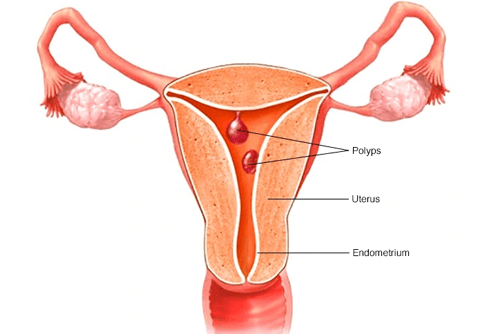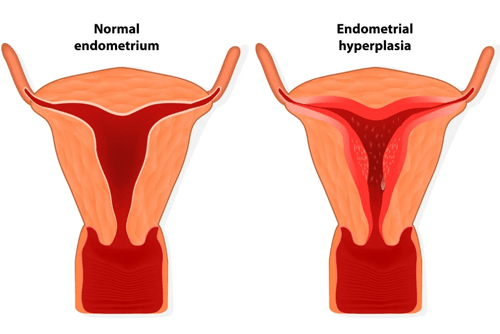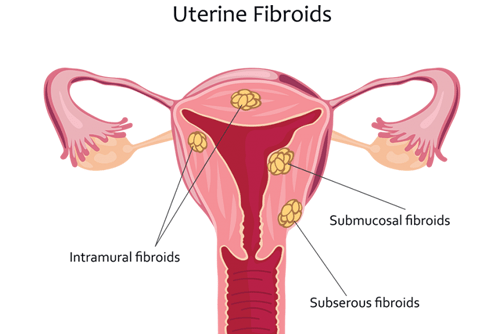Menstruation is a normal process for women all over the world. The crimson tides visit every month until the ovaries tire out; menopause, the end of the reproductive journey. However, menstruation isn’t as straightforward as everyone presumes it to be. It can be unpredictable, and those of us who experience abnormal uterine bleeding know how challenging the whole ordeal is. Abnormal uterine bleeding is when the menstrual cycle is irregular, longer, or heavier than the usual, or if bleeding occurs between the menstrual cycles. Heavy menstrual bleeding, also known as Menorrhagia, is when more than 80mL (that is, one-third cup) of menstrual blood loss occurs every month. A significant consequence of this is anemia, particularly iron-deficiency anemia. Anemia will lead to fatigue, weakness, a decline in concentration, shortness of breath, and lightheadedness.
There are several causes of abnormal uterine bleeding, the most common are:

- Endometrial polyps are benign outgrowths from the uterine lining (the endometrium) into the uterine cavity. Multiple polyps within the uterus increase the risk of heavy menses.

- Endometrial hyperplasia is when the endometrial lining becomes thick and disorganized. Simple endometrial hyperplasia is a cause for no concern. But, complex hyperplasia increases the risk of developing endometrial cancer. In postmenopausal women, endometrial hyperplasia is considered to be abnormal and contributes to postmenopausal bleeding.

- Fibroids are benign growths within the uterus. They vary in size and location and may contribute to heavy, painful menses.
To determine if you are experiencing abnormal uterine bleeding, it is imperative to understand your own body. Listen to your body. Recognize any changes in your menstrual cycle; the flow, the duration, the number of menstrual products you use, or how often you change them. Watch out for signs of anemia. Heavy menstrual bleeding does not have to take over your life; you have the power to control it. Knowing that you are experiencing abnormal uterine bleeding is the first step. The best next step will be to visit your gynecologist for a pelvic exam. When dealing with your health issues, don’t wait until your annual exam to tell your gynecologist about them.
Abnormal uterine bleeding is a serious matter that needs to be dealt with promptly.
A pelvic or vaginal ultrasound will be necessary to evaluate abnormal uterine bleeding. This simple ultrasound will be able to detect endometrial hyperplasia, endometrial polyp, and fibroids.
A biopsy of the abnormal endometrial tissue may be necessary for a detailed analysis of the endometrial tissue. As mentioned, uterine bleeding after menopause is abnormal and necessitates timely evaluation. A biopsy will aid in differentiating whether the hyperplasia is simple or complex. A biopsy is a simple diagnostic procedure that can be performed in the office.
An endometrial ablation may be the solution for your abnormal menstrual bleeding. An endometrial ablation is a minimally invasive surgical procedure that removes the endometrial lining and preserves the uterus. Ablations destroy the functioning endometrial layer, which prevents regrowth and suppresses menstruation. Previously, a hysterectomy (removal of the uterus) was the go-to surgery for abnormal menstrual bleeding. Now, an endometrial ablation offers a quick solution to an exasperating problem. Endometrial ablations are more advantageous as it is a 90 second outpatient procedure that requires minimal recovery time.
Abnormal uterine bleeding can affect your quality of life and limit your activities. However, you do not have to let it get in the way of you enjoying your best life. Endometrial ablation can be your way out of this and remedy for an effortless happy life.

